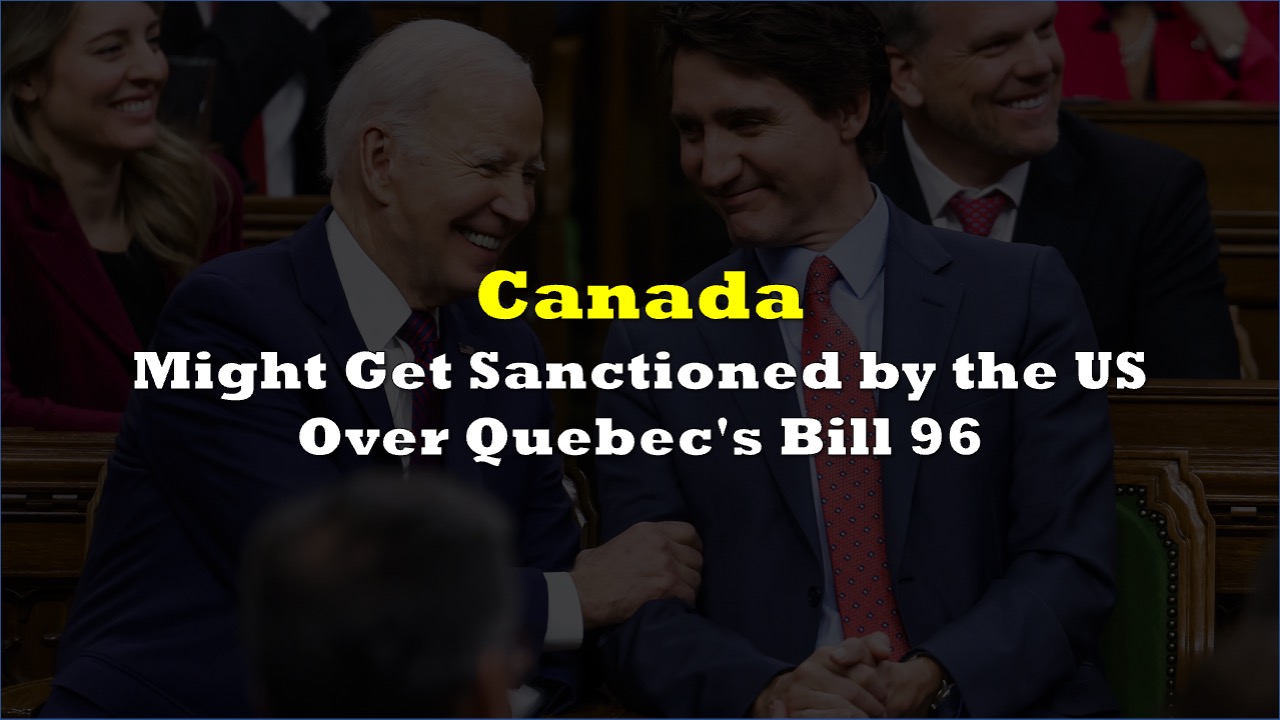The US government is quietly discussing the possibility of imposing trade sanctions on Canada over Quebec’s controversial Bill 96 language law, CBC News reported Tuesday.
Documents obtained under the US Freedom of Information law reveal that American officials are concerned that the implementation of Bill 96, or the controversial law that reforms provincial language laws to protect the position of the French language, could result in fewer American products being shipped to Canada, not just Quebec.
HOLY CRAP 🇨🇦 The US is considering putting trade sanctions on CANADA because of Quebec’s language laws 🤯
— Melissa 🇨🇦 (@MelissaLMRogers) June 11, 2024
Meanwhile, The 2 countries consider themselves among the closest of allies, and they share the longest border between any 2 nations in the world 🌍 Good job QUEBEC pic.twitter.com/zHCAxAnLYC
Documents show that officials from the Office of the US Trade Representative (USTR) have debated whether the legislation contravenes trade agreements between Canada and the United States. They have discussed whether the restrictions in Bill 96 constitute a technical barrier to trade, a breach of trade-related intellectual property rights, or a violation of Section 301 of the Trade Act of 1974, which could justify trade sanctions.
The International Trademark Association (INTA) has been urging the US government to raise concerns about Bill 96 with the Canadian government and consider trade sanctions. In December 2023, INTA organized a meeting between USTR officials and executives from several large corporations who outlined their concerns.
A group of businesses, practitioners and trade associations has also warned the US government that while Bill 96 only applies to Quebec, it could impact products available in the rest of the country.
“The Quebec consumer is who will be hurt, as they will either be deprived of goods available to others or will pay higher prices to recoup compliance cost,” CBC News cites the document. “In some instances, where distribution models are more national, withdrawing from Quebec may also mean withdrawing from Canada entirely. As a result, consumers in other provinces may also see fewer options on their shelves.”
At the meeting in December, USTR officials pointed out that while Canada is responsible for trade agreements, Bill 96 is a provincial law, complicating the situation.
“A complicating factor is that our counterparts are federal and Bill 96 is Quebecian [sic],” deputy assistant U.S. trade representative Jacob Ewerdt wrote to INTA’s director of government relations Jenny Simmons in December. “It is as if Canada would come to the USTR with a law in Wisconsin — we could figure it out if needed, but it’s not something that we commonly deal with.”
The Canadian government is aware of the concerns expressed by various stakeholders regarding Quebec’s amendments to the Charter of the French Language as modernized under Bill 96 and accompanying regulations. The final regulations to implement Bill 96 are expected to be made public in the coming weeks, with a number of provisions set to go into effect in June 2025.
Information for this story was found via CBC News, and the sources and companies mentioned. The author has no securities or affiliations related to the organizations discussed. Not a recommendation to buy or sell. Always do additional research and consult a professional before purchasing a security. The author holds no licenses.









